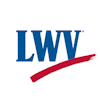Poudre School District Board Meeting 12/12/23
by Matthew Liberati
For more information (including members in attendance) see the full notes document here.*
View the meeting agenda.
A video recording of the meeting is available here.
Recognition
Fossil Ridge High School Band Class 5A State Champions Second Year in a row and sixth overall
Superintendent's Report given by Chief of Staff Lauren Hooten
- The first video in Understanding PSD is launched, focused on enrollment trends.
- The Institute for the Built Environment at Colorado State University (IBE) has been selected to facilitate the Facilities Planning Steering Committee.
- Steps for stakeholders to apply to the above committee will be announced the week of 12/18 https://www.psdschools.org/long-range-planning
Community Comment
- A commenter talked about the need to continue to focus on and update dyslexia instruction.
- A commenter talked about focusing on IEP students and highlighted that students on IEPs in the district perform lower on state assessments, compared to peer districts.
- A commenter talked about the importance of choice for educational options, district resources used for PSD charter expansion, and balancing financial and educational outcomes.
- A commenter talked about the importance of programming at district schools specifically related to Poudre Community Academy, loss of unique programming due to consolidation, and equity that all schools have adequate facilities.
Audit Report and Financial Condition & Activities Approved 7-0
The audit report analyzes the financial statements prepared by the district. No findings were outlined in the report. Throughout the year the district discussed financial controls that govern how the district generates financial statements.
School Board Member Reports
- Director Reed thanked the audit committee for their work.
- Director Havelda thanked Dwayne Schmitz for bringing student advisory board members to the Colorado Association of School Boards meeting.
- Director Reed recognized Kathy McKay and her CTE program.
Retro Commissioning reviews existing building operations for estimated 15% energy savings
The study focused on building comfort, following codes and regulations, standardizing operations, energy savings, and training. The study found an average of 15% in energy savings per building focused on three common areas:
- Optimize equipment operations based on building occupancy.
- Use cooler temperatures at night to help cool the building.
- Calibrate sensors and fix actuator failures.
Some recommendations have not been fully funded.
District Facilities Summary and Discussion ~$900 million over 10 years
- $362 million for facility equipment replacement
- $253 million for facility project costs (abatement, design) including inflation
- $4.6 million for 6 solar site installations with year 1 utility savings of $267k
- $268 million to install 36 air conditioners over 7 years with 3% inflation
The potential energy savings is estimated to be equal to powering 199 homes for one year. Reports will be finalized and presented in Q1 of 2024
Annual Mill Levy Calculation and Certification Discussion
The board of education must certify the mill rate by January 10. The district is waiting on final numbers from Larimer County based on recent changes passed by the Colorado legislature. These numbers are approximately 75% of the district’s total budget. Total Program Funding = Per Pupil Revenue times Funded Pupils. This number is static; as property taxes increase and the district collects more funding, the state reduces the amount they contribute. Director Brokish commented that even though local property taxes are increasing, the state will reduce their amount proportionately, so there is no net benefit to the district from the higher assessed property values and associated taxes.
Statutory levies are required by law. State law sets the mill levy rate for schools at 27 mills. Tax abated and refunded has a mill levy rate of .191. Mill overrides are additional dollar amounts approved by voters to spend on schools. The amount of the 2019 mill override increases with inflation – all other override amounts remain constant A bond redemption mill levy pays for principal and interest on bonds, and retires some existing bond debt.
For a median home in the district with an increase in assessed value from 2023 at $535,000 to 2024 at $700,000, the estimated taxes paid to Poudre School District will have an annual increase of $229. For every $1 million in non-residential value the estimated tax is $14,892.
District Annual Budget Discussion FY25 starting July 1 2024.
The district budget priorities are aligned to the strategic plan (literacy, graduating with options, and mental health and belonging). Other budget considerations include evaluating declining enrollment, safety, competitive compensation and benefits, assessment of universal pre-k, and healthy meals for all. The initial governor’s budget has a per-pupil increase of $705 (~$669 for PSD), which includes 5% inflation and eliminates the budget stabilization factor.
Budget Challenges
Declining enrollment will reduce the total funding the district receives. Enrollment is forecast to decline 1.78% next year and 9.28% over 5 years. Inflation also continues to be a challenge. There is a commitment for $4 million compensation over 2 years that is not reflected in the budget. In FY2023-4 the district was able to fund 3% benefit premium increases because of lower health insurance premium payments during covid, and employee benefit costs increased another 3%.
Budget Timeline
- January Enrollment and Mill Levy Finalized
- Feb-March School Budgets
- March Department Budgets
- Contract Negotiations December-May
- Budget Adopted by June 30th
Questions to Consider
- How will the district balance infrastructure and budget challenges – asking for funds at the ballot or with cuts?
- Will PSD enrollment stabilize, and if so, when?
Next Meeting
January 9, 5:30 p.m.
*Citizen Observers further the commitment of the League of Women Voters to its principle of Citizens Right to Know, however, we are not acting as journalists. Omissions and errors are possible. It is assumed that users of this information are responsible for their own fact-checking. This could include contacting a government clerk, conversing with an elected official or staff, and/or asking us to speak to the Observer who attended.
